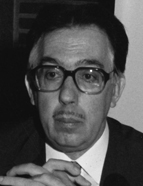

“My interest in history dates back to primary school. I invented countries and the history of those countries, and I wrote their history from pre-history to the present day” (A. H. de Oliveira Marques. O Homem…[A. H. Marques. The Man…], 1994, page 22). This young boy, born into the Lisbon educated bourgeoisie, studied at Liceu Camões and Liceu Gil Vicente and did, in fact, turn out to be a renowned historian. And this dream of inventing countries, where he would travel in time, must have come to him from his early discerning eye for stamps and his love for collecting them. Not surprisingly, his first paper, written at the age of 18, was on philately, and three years later his first work História do Selo Postal Português [History of the Portuguese Postage Stamp] was published, while he continued to explore the subject of philately throughout his life. Upon completion of high school, he entered the Instituto Superior de Ciências Económicas e Financeiras [Higher Institute of Economic Sciences and Finance] in 1950, which he would abandon in 1952 to enrol on the Ciências Histórico-Filosóficas [History and Philosophy of Science] course at the Faculdade de Letras de Lisboa [Faculty of Arts of Lisbon]. At the same time, he studied English, French, Italian and German at accredited Language Institutes becoming enviably proficient in foreign languages. He graduated in June 1956 and the following month of July, in a unique feat, he submitted his dissertation, A Sociedade em Portugal dos séculos XII a XIV [Portuguese Society from the twelfth to the fourteenth century] on which he had been working since his second year at university under the supervision of Virginia Rau, thus completing the licenciatura [first degree] with an overall mark of 17 out of 20. In October of the same year, he departed for Würzburg to initiate his PhD research on the commercial relations between Portugal and the countries of the Hanseatic League, under the supervision of Professor Hermann Kellenbenz. This competent, committed supervisor worked with his supervisee one afternoon per week, instilling in him a rigorous, systematic method that met the personal demands of such a disciple, which he replicated when he was a supervisor himself. These traits of the German school, combined with the traits of the French school, perennially moulded his identity as a historian. Kellenbenz initiated him in the subject of bibliography and introduced him to the diverse German archives where the documents under study were filed. Oliveira Marques also looked for sources in the libraries and archives of other cities in the German Democratic Republic, in the Public Record Office and in the Library of the British Museum, in England, in the National Library in France, and also in Belgium, Holland and Spain, having defended his printed doctoral thesis, Hansa e Portugal na Idade Média [The Hanseatic League and Portugal in the Middle Ages], after four years, on 7th July 1960, with an overall mark of 18 out of 20.
